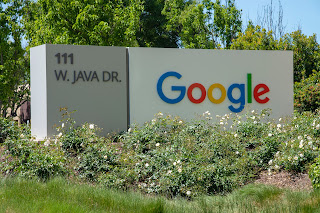Morne Patterson - Google Ads for Small Businesses
Introduction
Small businesses face competition trying to attract new customers
online. However, with the right strategies in place, they can level the playing
field and achieve remarkable success. One of the most effective methods for
small businesses to reach their target audience and boost conversions is
through Google Ads, specifically pay-per-click (PPC) advertising.
Understanding Google Ads and PPC Advertising
Google Ads, formerly known as Google AdWords, is an online
advertising platform developed by Google that allows businesses to display
their ads on the search engine results pages (SERPs) and Google's partner
websites. PPC advertising is a model where advertisers only pay when someone
clicks on their ad, making it a cost-effective approach for small businesses
with limited budgets.
Setting Clear Goals for Your PPC Campaigns
Before diving into Google Ads, it's important to establish
clear and measurable goals for your PPC campaigns. Whether it's driving website
traffic, generating leads, increasing sales, or promoting brand awareness,
defining your objectives will help shape your advertising strategy and measure
its success.
Identifying Your Target Audience
Knowing your target audience is the foundation of any
successful marketing campaign. Take the time to research and understand your
potential customers' demographics, interests, and online behavior. Google Ads
provides various targeting options to help you reach the right people with your
ads, ensuring you get the best return on your investment.
Conducting Keyword Research
Keywords are the heart of PPC advertising. Thorough keyword
research is essential to identify the relevant search terms your potential customers
are using to find products or services like yours. Choose a mix of high-intent,
long-tail keywords and utilise tools like Google's Keyword Planner to refine
your keyword list and bid effectively.
Crafting Compelling Ad Copy
Your ad copy is the first interaction potential customers
have with your business, so it needs to be compelling and relevant. Create
clear and concise ad headlines and descriptions that highlight your unique
selling points and encourage users to take action. A strong call-to-action
(CTA) can significantly impact click-through rates and conversions.
Designing Effective Landing Pages
When users click on your ad, they should be directed to a
landing page that delivers on the promise made in the ad copy. Design
user-friendly, relevant, and persuasive landing pages that lead visitors
towards your desired action, whether it's making a purchase, filling out a
form, or signing up for your newsletter.
Budget Management and Bid Strategies
For small businesses, managing advertising budgets is
critical. Set a daily or monthly budget that aligns with your overall marketing
goals. Additionally, explore different bidding strategies like manual CPC,
automated bidding, or enhanced CPC to optimise your ad performance.
Monitoring and Measuring Performance
Regularly monitor the performance of your Google Ads
campaigns using the platform's reporting tools. Analyse key metrics such as
click-through rates (CTR), conversion rates, cost per conversion, and return on
ad spend (ROAS). Analysing this information allows you to improve your ROI as
you optimise and make decisions based on statistics.
A/B Testing for Continuous Improvement
Continuous improvement is key to success in PPC advertising.
Conduct A/B tests for different ad elements, such as headlines, ad copy, and visuals,
to determine what resonates best with your audience. This iterative process
will help you refine your campaigns and drive better results over time.
Conclusion
Google Ads and pay-per-click advertising offer an invaluable
opportunity for small businesses to reach their target audience and achieve a
high return on investment. By setting clear goals, understanding your audience,
conducting thorough keyword research, and optimising your ad copy and landing
pages, you can create powerful PPC campaigns that drive traffic, conversions,
and business growth. Remember, PPC success requires consistent monitoring,
testing, and adaptability to stay ahead of the competition and maximise your
ROI in the ever-evolving digital marketing landscape.




Comments
Post a Comment